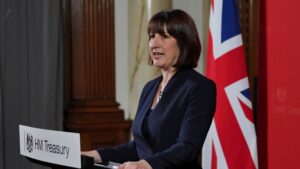Rachel Reeves has underscored the advantages of trading with China, indicating that the UK government is unlikely to implement punitive tariffs on imports from the world’s second-largest economy.
In her first interview since becoming Chancellor, Reeves told Bloomberg, “We are a small, open trading economy, and we benefit from those trade links with countries around the world, both for exports and imports, but also for foreign direct investment.
“Our approach is to trade and cooperate where possible and to challenge where necessary. However, we do not want to close the UK economy to imports and exports. We benefit from those trade links globally, including with China.”
This stance contrasts sharply with the United States, which has imposed a 100 per cent tariff on imported electric vehicles from China, and the European Union, which has similarly increased levies on Chinese goods.
Economists warn that the rise in protectionist trade policies could drive inflation and stifle global economic growth.
The UK has become increasingly dependent on services sector exports to manage its growing trade deficit. According to the Office for National Statistics, services exports have surged by around 60 per cent in real terms since 2010, while goods exports have increased by only 7 per cent and have fallen by about 6 per cent since the Brexit referendum in 2016.
Reeves acknowledged the challenging fiscal landscape she has inherited, suggesting that unpopular tax and spending decisions may be on the horizon. She indicated that the government’s first budget is likely to take place in September or October.
“I’m under no illusions about the scale of the challenge that I face,” Reeves remarked. “I won’t announce any tax breaks or changes without detailing how they will be funded.”
Reeves asserted that the UK’s current fiscal position is the worst since the end of the Second World War. Debt as a share of GDP is at its highest since the 1960s, and economic growth has decelerated significantly since the 2008 global financial crisis.
Rising interest rates over the past two years, aimed at curbing inflation, have increased government debt interest payments, reducing the scope for significant tax cuts or spending increases.
Government departments are collectively facing £20 billion in real-terms spending cuts, which economists argue could further strain already overburdened public services.
Read more:
Rachel Reeves champions benefits of China trade as UK maintains open economy stance

